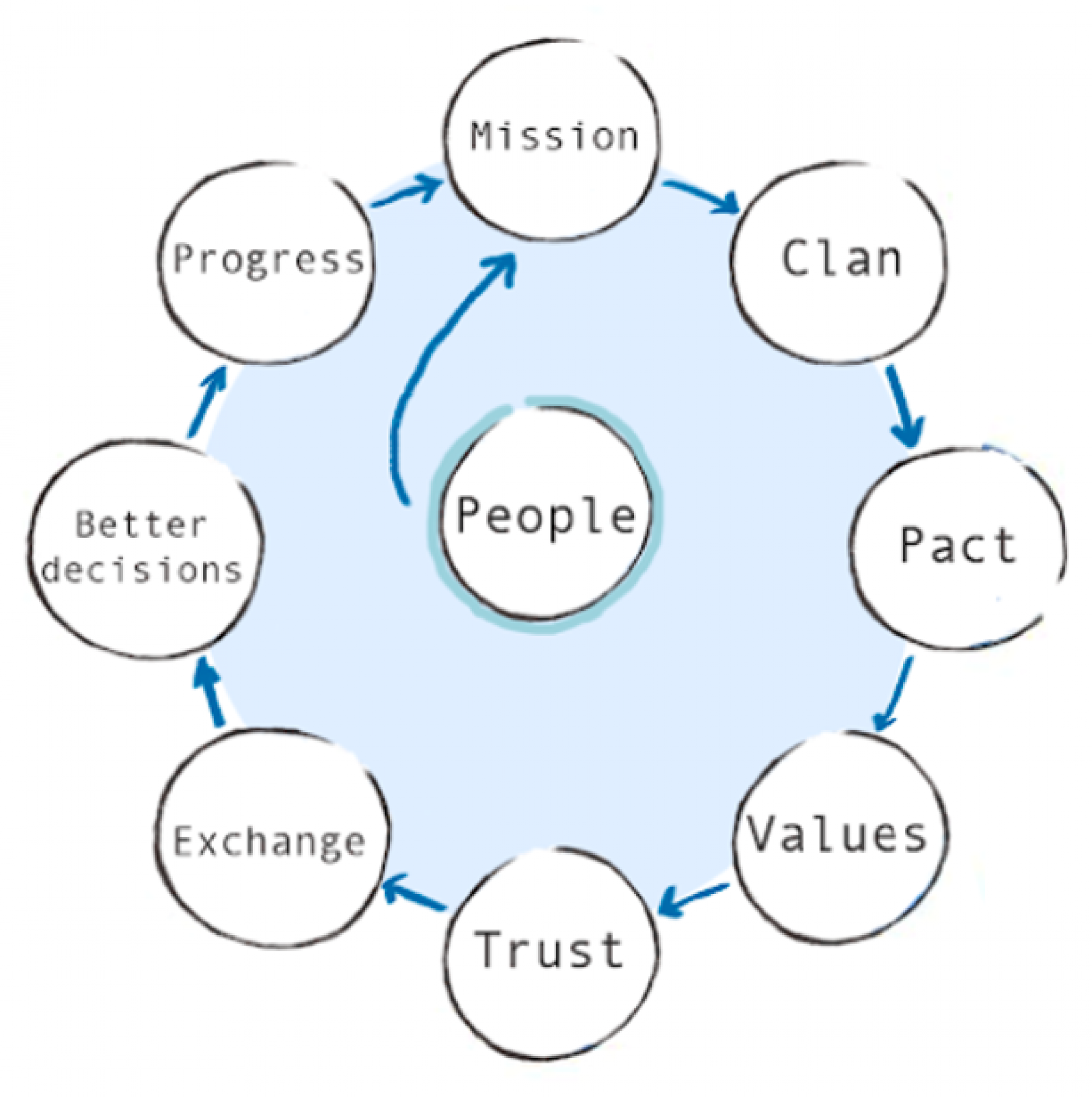


(FR) Les cookies fonctionnels sont essentiels pour le fonctionnement du site internet et ne peuvent être désactivés. Pour améliorer votre expérience, d'autres cookies sont utilisés. Vous pouvez choisir de les désactiver. Ils restent modifiables à tout moment via cette fenêtre.
(EN) Functional cookies are essential for the operation of the website and cannot be deactivated. To improve your experience, other cookies are used. You can choose to turn them off. They can be modified at any time via this window.
(NL) Functionele cookies zijn essentieel voor de werking van de website en kunnen niet worden gedeactiveerd. Om uw ervaring te verbeteren, worden andere cookies gebruikt. U kunt ervoor kiezen om ze uit te schakelen. Ze kunnen op elk moment worden gewijzigd via dit venster.
If for the digital transformation we have a panoply of tools and methods, for the transformation of the organizations that live it, it is first about men and women. The wheel below illustrates some of the challenges of this human transformation.

At the beginning of any successful transformation, there is a mission or an ambition. In our business of information management, the mission often sounds like "that everyone can have reliable and relevant information so that the right decisions are made and that the project is achieved in the budget and planning".
Around this mission must form a clan. In our business of information management we find all those who have a power or an interest in the information at stake - typically representatives of business, IT as well as users of systems and information concerned.
This clan must make a pact about the mission. This pact is a governance in the sense that it answers the question "how do we do it?" The answer is first "together - that's all" then you have to choose an organization and a mode of operation that will make the mission successful. With the pact, the clan becomes tribal, it is now a clan where everyone is connected to others and knows that he needs others, it is a clan that now functions as a whole.
What will weld this pact to the clan, these are values. In our business of information management, transparency is the basis, there is no place here for hidden agendas. Other important values are progress, the sense of improvement, the search for a win-win.
When a clan is welded to a pact by values, it will develop confidence, real oxygen of the social bond. Trust frees expression and creativity. There is no longer resignation or disengagement, but assertiveness and personal responsibility.
Confidence replaces the instruction-control pair with the exchange that will be the basis of collective intelligence and the learning organization.
It is this exchange that will allow the best decisions to be made. In information management, the good decisions arising from the exchange concern the clarification of People-Process-Technology clusters around given content and the implementation of an information policy that will implement data ownership.
Progress will flow naturally as a result of these better decisions. It is not definable in advance, the progress is the consequence of a process of creating confidence in the field of a mission.
And you, are you in charge of a transformation program? Are the following questions enlightening in your context?